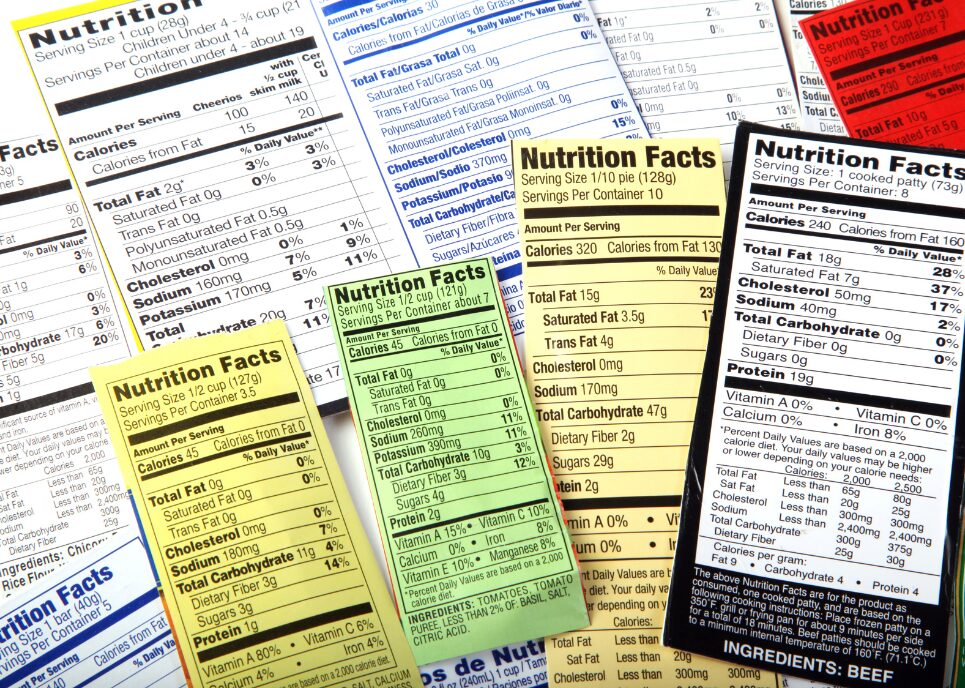If someone told us a few years ago that we could sell kale chips and vegan chocolates online—without ever touching a single box—we’d probably laugh while sipping our overpriced organic oat milk latte. But hey, welcome to 2025: where organic foods dropshipping is not only a thing—it’s a thriving, feel-good business opportunity.
Whether we’re wellness warriors, eco-conscious entrepreneurs, or just love the idea of doing good while making money, this niche hits the sweet spot. It’s where sustainability meets savvy e-commerce. And guess what? We don’t need a giant warehouse or a fridge full of perishable goods to get started. All we need is a laptop, a reliable supplier, and a vision that tastes as good as it feels.
Disclaimer: Before reading this piece, grab yourself a little something to eat—ideally something organic—because it’s going to get yummy.
Organic foods dropshipping combines high consumer demand with low overhead, allowing us to sell health-conscious products without holding inventory.
The top-performing organic products to dropship in 2025 include herbal teas, plant-based protein powders, organic baby food, and eco-conscious snacks.
To stay compliant, we must ensure suppliers are certified, meet food safety standards, and understand the laws around labeling, shipping, and organic claims.
Success in this niche comes from building trust (certifications, reviews), using eco-friendly packaging, and scaling with tools like AutoDS.
Organic Food Dropshipping: What Is It & Should You Do It?
Let’s break down health and wellness products dropshipping like a smoothie recipe.
Dropshipping is the business model where we sell products online without holding any inventory. When a customer places an order, we purchase the item from a third-party supplier who ships it directly to the customer. Easy. Breezy. No storage stress.
Now, enter: organic food. These are products made without synthetic fertilizers, pesticides, GMOs, or additives. We’re talking real ingredients with real impact—from farm to table (or snack drawer), with minimal environmental baggage.
So what happens when we combine the two? Magic.
Dropshipping organic food means we’re offering high-demand, health-conscious products without the upfront cost of stocking perishable inventory. We’re riding the wellness wave while keeping things lean and low-risk. And let’s be honest—people are spending more on what they eat, and they’re choosing cleaner, greener options.
Why This Niche is Chef’s Kiss:
1. Rising Demand for Organic Products
Consumers are hungry for better choices. According to the Organic Trade Association, the U.S. organic food market hit almost $70 billion in sales in 2023—and it’s still climbing. Health, sustainability, and clean-label living are more than trends—they’re lifestyle shifts.

Plus, Gen Z and Millennials are leading the charge with reusable totes and almond milk cappuccinos in hand. Translation? There’s a loyal, growing customer base already searching for what we’re selling.
2. Low-Risk, High-Reward Business Model
Traditional food businesses? Inventory management, expiration dates, refrigeration logistics… yikes.
But with dropshipping, we avoid all that hassle. We focus on curating the best products and marketing them like pros, while suppliers handle the rest. No spoiled goods, no waste, and way fewer headaches.
3. Eco-Friendly and Health-Focused Niche
This is more than a business—it’s a mission. Selling organic products positions us as part of the solution, not the problem. We appeal to customers who care about their bodies, the planet, and ethical production.
Let’s not forget: values sell. When our brand aligns with a customer’s belief system, loyalty follows.
Top 10 Organic Food Products to Dropship in 2025

I hope I convinced you this is one of the best dropshipping niches for 2025 because it is. Now, without further ado, let’s dish out our favorite products for this creative niche while learning how to keep things fresh—literally and legally.
Organic herbal teas

Chamomile, peppermint, matcha, hibiscus… the tea game is hotter than ever—and we’re not just talking about the temperature. Organic herbal teas are booming thanks to wellness trends and TikTokers sipping on “stress relief” infusions after their hot girl walks.
They’re lightweight, have a long shelf life, and come in beautiful packaging that screams aesthetic morning routine.
Pro Tip: Look for certified organic labels and always check if the supplier includes clear ingredient lists. Wellness-savvy shoppers know their stuff, and they’ll ask about it.
Gluten-free and organic snacks

Picture this: guilt-free, gluten-free, organic snacks made with coconut flour, almond butter, or ancient grains. Yes, please. Snackers are leveling up. Consumers want crunchy, munchy things that are also clean, allergen-friendly, and label-approved.
For this product, you can filter by vegan, non-GMO, and gluten-free tags to hit multiple target markets at once. Bonus points for resealable eco-packaging.
Organic baby food

Parents are spending more on what goes into their babies’ bellies, and for good reason. Organic baby food, from fruit purées to veggie blends, is one of the fastest-growing e-commerce niches.
This is not just about food—it’s about trust. Organic baby food makes parents feel like they’re making the best choice for their little ones.
⚠️ Important: Be extra cautious with claims. No “doctor approved” or “cures colic” unless backed by legal certifications.
Plant-based protein powders

Fitness meets clean living. From pea protein to hemp and brown rice blends, these powders are fueling everything from gym sessions to smoothie bowls. Health-conscious consumers love a good post-workout ritual—especially when it’s dairy-free and easy on the tummy.
Organic dried fruits and nuts

Snackable, shelf-stable, and globally loved. Think goji berries, raw almonds, figs, mango slices—you name it.
These are pantry staples for health freaks, keto followers, and the average snack hoarder alike.
Organic pasta and grains

Spaghetti made from quinoa? Couscous from chickpeas? Yep, the carb revolution is very real. People are trading in traditional wheat for nutrient-packed alternatives. And organic options just seal the deal.
Pro Tip: Offer bundle options (think: pasta + sauce kits). It’s a great way to increase cart value and make the shopper feel like they’re getting a curated experience.
Cold-pressed organic oils

Avocado, coconut, flaxseed, and olive—cold-pressed oils are in every kitchen TikTok star’s pantry tour. These are multi-use heroes: for cooking, skincare, and even oil pulling (Google it—but fair warning, it’s… a thing.).
For this kind of product, mind the packaging and shipping methods. Oils can leak, so choose suppliers with spill-proof, eco-friendly packaging.
Vegan-friendly organic chocolates

Think beyond your basic candy bar. We’re talking fair-trade, raw cacao, adaptogenic mushroom-infused chocolates. Sweet tooth? Activated. Vegan, organic chocolate caters to ethical indulgence. People want to feel good about their treats.
Make sure your supplier ships with temperature protection, especially in warmer months. Melted chocolate = angry customers.
Organic spice blends

Turmeric lattes, Moroccan rubs, everything bagel seasoning—spices are having a moment. And organic blends elevate any dish and your store’s vibe. Also, spices are compact, don’t spoil quickly, and look great in glass jars. Win-win-win.
Marketing Tip: Educate your audience. Create content around how to use each blend in recipes—it builds trust and boosts engagement.
Organic dog food

People aren’t just eating clean—they’re feeding their pets clean, too. Organic kibble, freeze-dried veggies, and gluten-free biscuits? Bow-WOW.
The best part is pet parents are willing to splurge. The organic pet food industry is projected to keep growing like a very good boy.
For pet-related products, always prioritize transparent ingredients, vet approval, and clear feeding guidelines. And yes, dog influencers are a thing—use that to your marketing advantage.
Legal Considerations for Dropshipping Organic Foods

Okay, time for the not-so-glamorous (but super important) part: the legal stuff. Dropshipping organic food might sound like a dream niche—and it can be—but we can’t just slap an “organic” sticker on a product and call it a day.
Because we’re dealing with food (aka, something people put into their bodies), this niche is highly regulated. And rightly so! Consumers are more informed than ever, and mislabeling or mishandling anything related to food—especially organic food—can lead to legal trouble, refund nightmares, and reputational damage.
So, before we build our green empire, let’s walk through the key things we need to know.
Complying With Organic Certification Standards
“Organic” isn’t just a vibe—it’s a legally protected term in most countries. If we’re advertising or selling a product as organic, it must meet that country’s official certification standards.
- In the U.S., that means the USDA’s National Organic Program (NOP).
- In the EU, it’s governed by EU Organic Regulations.
- In the UK, it’s managed by DEFRA and the Soil Association.
What this means for dropshippers: We must make sure our supplier is certified by a legitimate organic certification body. Don’t just take their word for it—ask for proof. Certificates. License numbers. Anything official.
Pro Tip: If the supplier can’t provide a legit organic certificate, do not market the product as organic. You can highlight its natural qualities but don’t misuse the “O” word.
Labeling Requirements
Organic food products have strict labeling rules that vary by region. Labels can’t make unverified claims like “100% organic” unless the product meets exact thresholds (e.g., 95% or more certified organic ingredients).
What to check:
- Are labels clear, compliant, and in the language of your target market?
- Do they display the required symbols (like the USDA Organic seal) correctly?
- Do they include the certification agency’s name?
For us: Even if we’re not designing the packaging, we’re still responsible for what’s advertised on our store. So we must make sure our product descriptions match what’s legally allowed on the label.
Import and Export Regulations
Here’s where things get a little more complicated.
Organic standards aren’t always mutually recognized across borders. So even if a product is certified organic in one country, it might not be recognized as such in another.
For example:
- A tea blend certified organic in India might not meet the EU’s import standards unless the certifier is EU-approved.
- Organic pet food from the U.S. might face extra scrutiny when shipped to the UK post-Brexit.
What this means for us: Check which certifications are recognized in your target country before advertising to that market. Some regions may require importer registration or extra documentation to legally sell food products—even via dropshipping.
Specific Laws for Shipping Organic Products
Shipping food is a whole different ball game. Add “organic” to the mix, and there are extra hoops.
Some countries enforce:
- Storage conditions: Organic products must not be contaminated by non-organic ones during storage or shipping.
- Packaging laws: Materials used must meet specific food-grade and eco-friendly requirements.
- Prohibited ingredients lists: Even trace additives not allowed in organic products can result in shipment rejection or destruction at customs.
What to do: Work with suppliers who already ship internationally and are experienced in fulfilling organic orders. Ask how they store, package, and label these products. If they don’t have a system in place, that’s a red flag.
Food Safety and Handling
Just because we’re not physically touching the product doesn’t mean we’re off the hook. Organic food still needs to meet general food safety regulations, and we’re responsible for offering safe, compliant products.
Key considerations:
- Is the food perishable? If so, what’s the shelf life, and how fast can it be shipped?
- Is the supplier following good manufacturing practices (GMP)?
- Are there clear allergens listed on the packaging?
Also, always include ingredient lists, allergens, storage recommendations, and expiration info on our site. This is basic compliance, but it also builds customer trust.
Tips for Success in the Organic Foods Dropshipping Niche
So we’ve picked our products, found suppliers, and double-checked the legal stuff. What now? It’s time to actually build something great—something that sells, scales, and maybe even sparks joy (Marie Kondo would be proud, I hope).
Here are some key strategies to not just survive but thrive in the organic food dropshipping niche.
Scale Your Organic Food Dropshipping Store
Once we’ve got a few winning products and orders are rolling in, it’s time to scale, and here’s where automation and AI become our BFFs.
Running everything manually? That’s a one-way ticket to burnout. Enter: AutoDS.
With AutoDS, we can:
- Automate product imports (yes, even in bulk!)
- Monitor stock and price changes so we don’t accidentally sell out-of-stock items
- Automate order fulfillment with “Fulfilled by AutoDS”
- And even use the AI-powered store builder if we’re starting from scratch
Basically, it takes all the boring, repetitive stuff off our plate so we can focus on growth, branding, and connecting with our health-conscious crowd.
Automation isn’t just a time-saver—it’s a scale-saver.
Stay Updated!

Trends in the organic world move fast. One day it’s turmeric everything, the next it’s ashwagandha gummies or sea moss gel (I’m not making this up, I swear).
To stay ahead of the game:
- Subscribe to wellness and food trend newsletters
- Lurk on Reddit threads and wellness TikTok
- Follow competitors (and outdo them 👀)
Staying informed helps us source better products, create smarter marketing, and always be that store that feels one step ahead.
Mix And Match Between Niches
Why stop at just organic food? If we’re building a wellness-focused brand, let’s expand the vibe.
Some juicy niche combos:
- Organic food + eco-friendly kitchenware (think bamboo utensils or beeswax wraps)
Organic food + natural skincare (because the clean lifestyle doesn’t stop at the plate) - Organic food + fitness accessories (like plant-based protein + resistance bands)
This not only broadens our product offering, but it helps us attract multiple audiences—health buffs, green queens, almond moms, and beyond.
Prioritize Eco-friendly Packaging
Nothing says “we don’t actually care” like organic tea in three layers of plastic bubble wrap.
Even if we’re dropshipping, it’s our job to choose suppliers who use sustainable packaging, or at least make an effort. Many customers will straight-up abandon a cart if they see your product comes in landfill-grade wrapping.
Eco-packaging is a marketing angle in itself. Show it off in your photos. Brag about it in your product descriptions. People eat that up (I know I do).
Build Trust
Organic buyers? We’re picky—and honestly, good for us.
That’s why dropshippers need to:
- Show proof of certifications right on the product page
- Add logos like “USDA Organic” or “EU Certified Organic” (only if the supplier has them!)
- Encourage photo reviews and detailed testimonials from buyers
If a new shopper lands on our site and sees 50 five-star reviews on our organic almond butter, plus a clear organic certification, they’re going to feel way more confident hitting “Add to Cart.”
Trust = conversions. Always.
Bonus Tip: Consider White Label or Private Label Dropshipping
Want to stand out and stop relying on pre-branded products? White/private label dropshipping lets us customize packaging, labels, and logos—even for food, supplements, and snacks. That means we can build a recognizable wellness brand without manufacturing anything ourselves. Just team up with a supplier that offers private label services, add our branding flair, and boom: we’ve got a store that feels totally us.
Frequently Asked Questions
Does Organic Dropshipping Work?
Yes, it works and it’s growing fast! As long as we choose the right suppliers, follow legal guidelines, and market smart, organic dropshipping can be a profitable and sustainable niche.
Can You Do Dropshipping With Food?
Yes, but it comes with extra rules. Dropshipping food is legal, but we must make sure products meet safety standards, are labeled correctly, and are shipped properly—especially with perishables.
How Can I Ensure My Products Are Truly Organic?
Always ask for official organic certification. Legit suppliers should provide certificates from recognized bodies like USDA, EU Organic, or Soil Association. No proof? Don’t claim it’s organic.
Conclusion
Organic foods dropshipping isn’t just a trend—it’s a smart, future-friendly business move. With the right suppliers, legal know-how, and tools like AutoDS to keep things running smoothly, we can turn clean eating into clean profits.
Let’s build a brand that’s good for the planet and the wallet. 🌍💰
Spilling The Tea On Dropshipping Herbal Teas
Dropship Vitamin Supplements (Without Breaking The Rules!)
Supplement Dropshipping: Everything You Need To Know In 2025
From Burnout To Buy Now: Mental Health And Self-Care Products Dropshipping





















